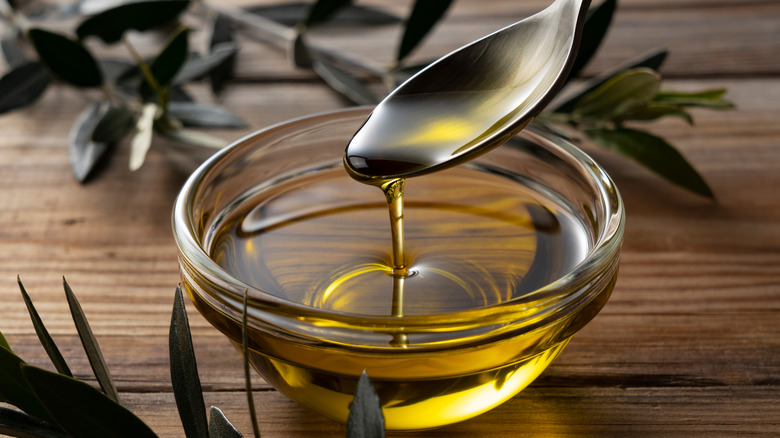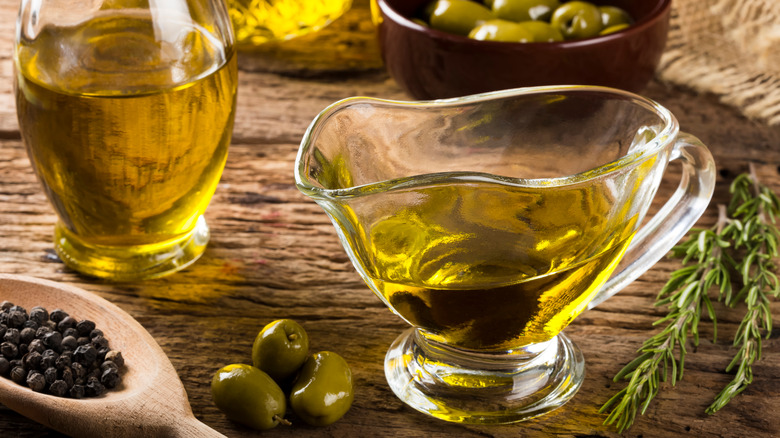What Is High Phenolic Olive Oil And Is It Good For You?
Olive oil is a fan favorite for a number of purposes, including cooking, beauty products, and medicine (per MedicalNewsToday). The oil is so commonly used that you probably have a bottle of extra-virgin olive oil in your kitchen cabinet right now. Olive oil is made from pressed whole olives and has its origins in Mediterranean regions. One tablespoon contains 1.86 grams of saturated fat, 1.9 milligrams of vitamin E, 8.13 micrograms of vitamin K, and is approximately 119 calories.
Consuming olive oil has many benefits, especially when referring to extra-virgin olive oil. Extra-virgin olive oil is high in saturated fat and is considered a safe, healthy option for cooking, as monounsaturated fats are resistant to hot temperatures, according to Healthline. Additionally, it contains powerful antioxidants that can potentially reduce your risk of chronic illness. These antioxidants minimize inflammation and protect blood cholesterol from oxidation, potentially reducing the likelihood of developing heart disease.
Interestingly, some studies have suggested that heart disease appears to be less prevalent in Mediterranean countries, where olive oil was originally developed. According to Seven Countries Study, implementing the Mediterranean diet has been associated with a 39% reduced risk of coronary mortality in European men and women who are middle-aged or elderly.
While we've all heard of olive oil and extra-virgin olive oil, you may be unfamiliar with high phenolic olive oil. Here is what experts have to say about this special form of olive oil.
Should you try high phenolic olive oil?
In an interview with Byrdie, molecular biologist Dr. Limor Goren explained what high phenolic olive oil is and its potential benefits. Dr. Goren, who is also the founder of the high phenolic olive oil brand, Kyoord, stated that this form is high in polyphenols. These are a type of antioxidant that's partly responsible for making olive oil as healthy as it is. While all extra-virgin olive oils contain polyphenols, there are some factors that can make an olive oil higher in polyphenols. For example, it's important to harvest olives while they are green and ripe to maximize their polyphenol content. As some types of olives contain more polyphenols than others, the number of polyphenols in oil can also depend on the kind of olive used to make it. Furthermore, by keeping your olive oil fresh, you can preserve its polyphenols, which are lost over time due to oxidation.
Much like extra-virgin olive oil, high phenolic olive oils can be extremely healthy. Olive oils that are high in polyphenols are believed to be associated with improved memory and cognitive function, decreased risk of cancer, and gut microbiota benefits (per Doctor Kara Fitzgerald). Diabetes can also be managed with high phenolic olive oils. Interestingly, scientists discovered that olive oils that are high in polyphenols are more efficient at inhibiting diabetes-related enzymes than one medication commonly prescribed to individuals who have diabetes.


